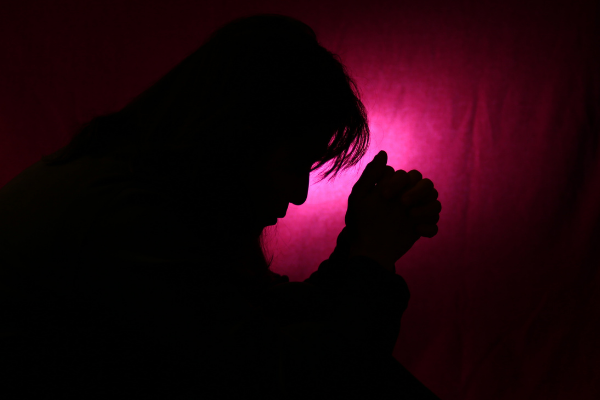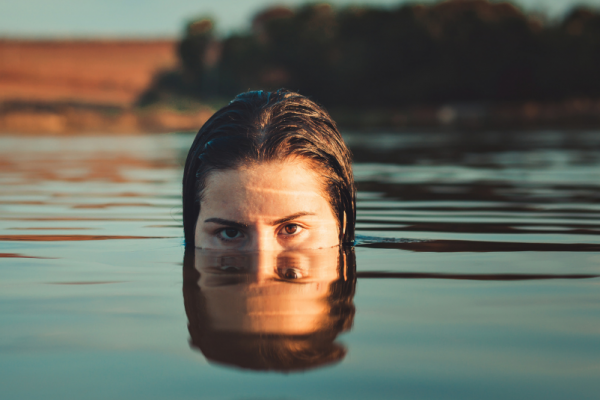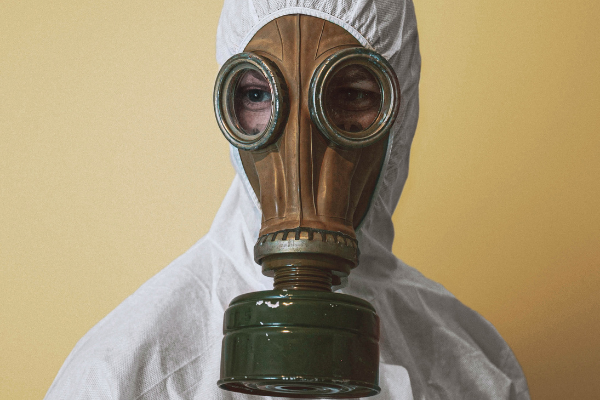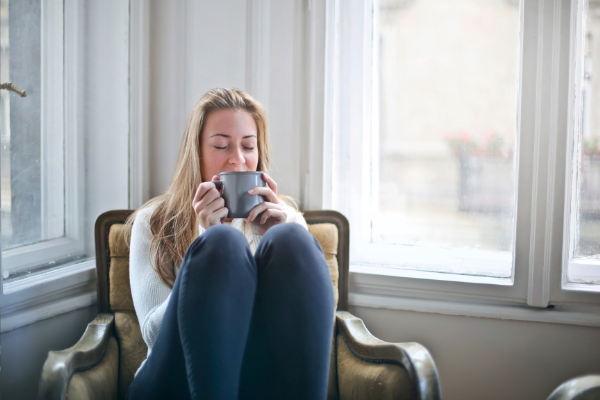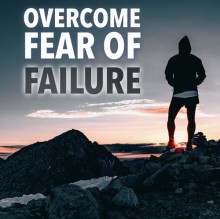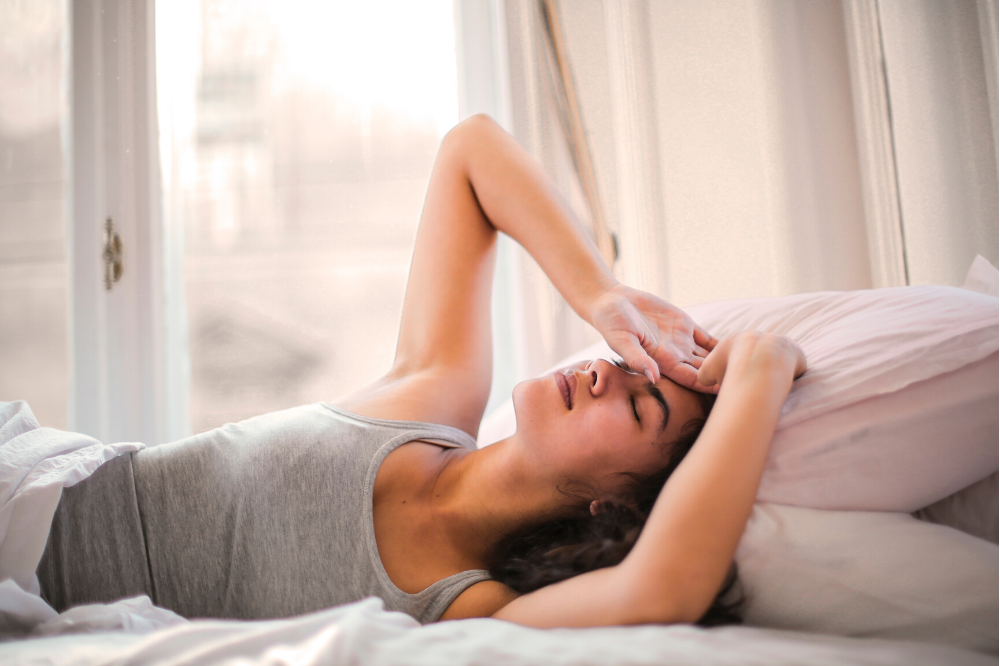
We all know that it's vital to get consistent, high-quality sleep. For example, you've likely noticed how your physical and mental well-being both suffer when you don't get enough rest, and perhaps you've read about some of the science that explains the importance of good sleep.
However, it turns out that most of us dramatically underestimate just how severe an impact sleep deprivation can have on our health.
If you're worried about your current sleep schedule and looking for ways to address bad habits or distractions, this article can help you.
We'll explore why this problem is so significant, considering six of the worst impacts it has on your health.
We'll also highlight the main causes of sleep deprivation, and ultimately explain how you can make changes that help you sleep better. With a combination of new habits, you could be feeling healthy and well-rested within the next few weeks.
What Causes Sleep Deprivation and Lack Of Sleep?
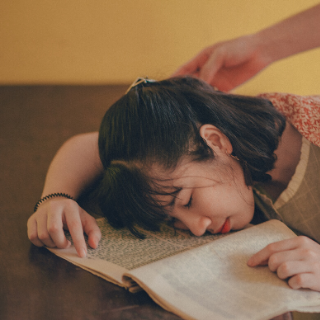
Some of the problems here are fairly intuitive - it's hard to fall asleep (and stay asleep) when you have a bad cold or flu that causes you to feel sore and sneezy.
Chronic illnesses can interfere with your sleep for similar reasons - conditions like arthritis and fibromyalgia make it tough to get comfortable.
Plus, some people simply suffer from unexplained insomnia, a condition that persists no matter how much they want to fall asleep.
Meanwhile, the kinds of external stressors that can interfere with sleep include worries about work or relationships, as well as irritants in the environment. For example, perhaps there is construction work outside your building, it's too bright in your room, or you have noisy people living next door.
Bad Habits That Cause Lack Of Sleep
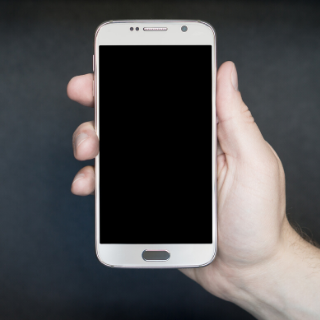
Exposing your eyes to blue light before bed: If you scroll through your social media feeds, play games, or read the news on your phone or laptop before bed, the blue light from the screen is proven to interfere with the production of sleep hormones.
Consequently, you're less likely to feel sleepy, and you're more likely to wake up multiple times in the night.
Using your bedroom for things other than rest: If you work in your bedroom, exercise or do anything else that is mentally or physically active, your mind fails to properly associate your bed with sleep.
In contrast, if you just use your bedroom for sleeping then you cultivate a habit of feeling ready to switch off whenever you step into the room.
Ingesting sugar or caffeine: Whether you drink coffee or soda too late in the day or find yourself tempted by a sugary snack, it's important to note that both sugar and caffeine keep you alert past the time when you really need to be falling asleep.
Trying to go straight from work to bed: It's important to set aside time to slow down, relaxing your body and mind.
You can't expect your brain to transition from hard work and focus on being ready to rest.
What Are The Effects Of Sleep Deprivation
Now that you have a sense of the most common causes of sleep deprivation, let's take a closer look at six of the most frequently seen consequences of sleep deprivation.
Some of these are minor effects that add up over time, while others are major ways in which lack of sleep gradually undermines both physical and mental well-being.
Sleep Deprivation Hallucinations
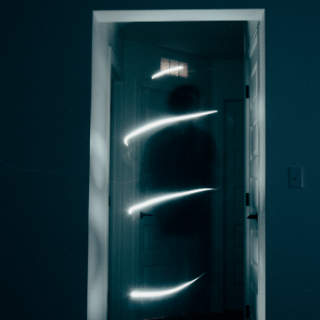
For example, you may think you hear someone saying your name or whispering to you during the day. This can be frightening and confusing. Meanwhile, you might start to see shapes or flashes in your field of vision (similar to those caused by migraines), or you may even see frightening or monstrous images.
Along with hallucinations, sleep deprivation can mimic other symptoms of serious mental illness, including feelings of disorientation and paranoia.
For example, some research suggests that around 2% of people who have sleep deprivation hallucinations have experiences that are comparable to those of paranoia schizophrenics in their severity.
Trouble With Thinking And Concentration

You may need people to repeat information several times, you may struggle to process what's happening to you even when it's urgent, and you might find it almost impossible to concrete on a cognitively demanding task.
This can not only undermine work performance but may actively place you in danger when you're navigating your daily life.
In addition, sleep-deprived people often report a reduced ability to consulate new memories, struggling to remember things they said and did while they were poorly rested.
Lack Of Sleep Can Cause Mood Swings
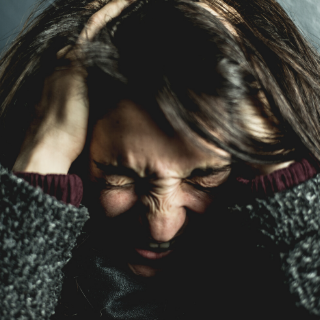
You'll likely experience mood swings, feeling happy one moment and then sad or irritable the next.
It's common to experience higher than usual levels of anxiety too, sometimes escalating to breathing difficulties and breathing attacks.
Some people also report symptoms of depression during periods of sleep deprivation.
Examples include reduced motivation, emotional flatness, lack of desire to engage with others, and a reduced interest in usual hobbies or passions.
In sum, if you don't get enough sleep then your emotions are likely to be erratic, and they'll tend toward the negative.
Sleep Deprivation Can Even Weaken Your Immune System
Worryingly, sleep deprivation also has a very real impact on the body's defenses against disease. In other words, if you haven't had enough sleep, your immune system is less capable of defending itself against viral and bacterial infections.
This goes for simple, everyday illnesses like colds and also more serious diseases. People who are sleep deprived also seem to do poorly when they get ill, taking longer to recover.
Lack Of Sleep Increases Your Blood Pressure
If you already tend toward having high blood pressure, it's likely to only get worse when you're sleep-deprived. This may mean that any medication you take isn't sufficient to keep your blood pressure in check.
Similarly, if your doctor tells you that you have a borderline case of hypertension, you're likely to pass into the danger zone if you're not getting enough rest. Consequently, you're at an increased risk of heart disease, heart attack, and strokes - especially if you’re in the habit of not getting enough sleep over weeks and months.
Microsleeps And Drowsiness Can Cause Accidents
Finally, when you're sleep-deprived, the level of exhaustion that you're dealing with means that you lose control of staying awake. You can find yourself falling asleep entirely without meaning to, experiencing what is known as "microsleeps" - seconds where you lose consciousness.
If this happens when you're driving, climbing, or walking, you can easily end up hurt. You could crash a car, fall from a stepladder, or fall in the street. In addition, even if you manage to stay awake, sleep deprivation ruins your coordination and makes you more likely to have accidents.
How Much Sleep Do You Need?
So, with all the above taken into account, it's clear that it's vital that you get enough sleep. But how much sleep do you actually need? How long is a sleep cycle, and how do you determine what number of hours will give you optimal rest?
Experts agree that there is no "one size fits all" rule here - rather, the amount of necessary sleep varies both by age and by the person. Divided by rough age group, here are the broad recommendations:
- 0-3 months: 14-17 hours
- 4-11 months: 12-15 hours
- 1-2 years: 11-14 hours
- 3-5 years: 10-13 hours
- 6-13 years: 9-11 hours
- 14-17 years: 8-10 hours
- 18-64 years: 7-9 hours
- 65+ years: 7-8 hours
To figure out what amount of sleep you need, identify your age bracket, and then simply experiment with different numbers of hours within that bracket. You may also find that the number of hours of sleep you need varies depending on what's going on in your life.
For example, if you're 40 years old, you might only need 7 hours of sleep during your summer vacation, but feel like you need closer to 9 during times of intense work stress.
In addition, note that the above may be influenced by underlying health conditions. For example, if you have an immune system disorder like arthritis or lupus, you may find that you need closer to 10 hours of sleep even if other adults that you know function well with only 7 or 8 hours under their belt.
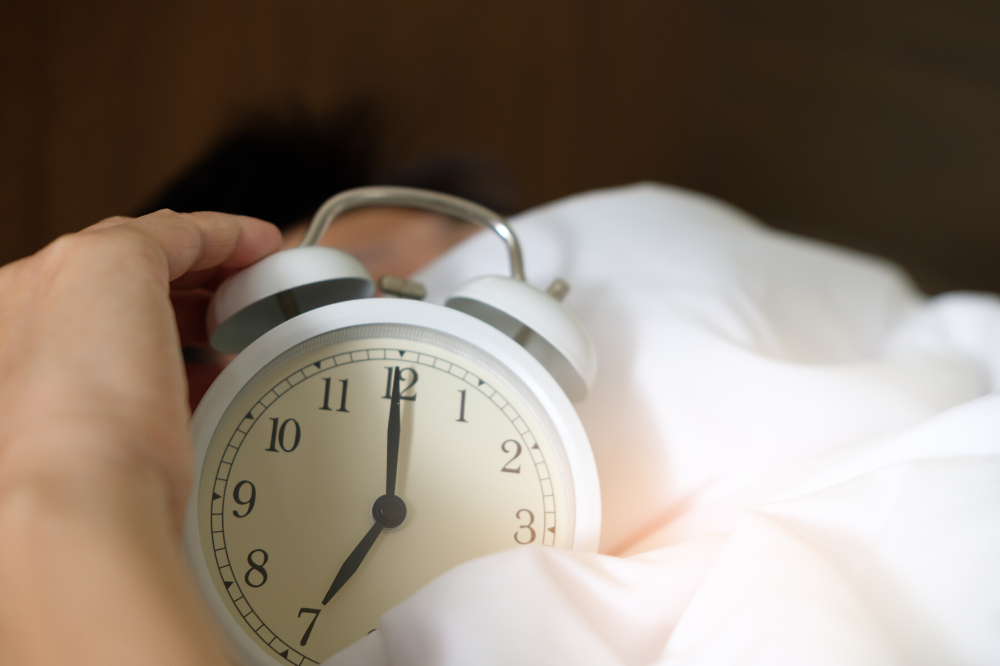
Sleep Debt And How To Pay It Back
Suppose you know that you've not been getting enough sleep and you want to make up for this. You're exhausted, experiencing mood swings and finding it hard to concentrate - in other words, you have a sleep debt. Will just one night's good sleep fix the problem?
Unfortunately not. While you can start to make up for one night of bad sleep by having some extra sleep the next night, if you're chronically underslept then it will take longer to feel better.
Sleep tips from experts on neurological function suggest that it takes about four days to properly recover from just one hour of sleep that you lost. So, if you've been sleeping for just four hours for a week, it may take up to 21 days for you to repay your sleep debt.
In the meantime, you may continue to experience sleep deprivation symptoms, even if you're now getting a solid 8-9 hours of sleep per night.
In short, the only way to really pay back a sleep debt is to commit to consistently getting the right amount of hours of sleep a night and to do so for at least a week. With that in mind, let's consider some of the most powerful things you can do in order to start sleeping better today.
How To Sleep Better
One obvious thing that you can do to facilitate better sleep is to time and monitor the amount of sleep you're getting, and correct it as needed. However, you may find that the issue isn't that simple - that you struggle to fall asleep or stay asleep, perhaps in part because of difficulty relaxing.
Here are three useful things you can do if you want to promote long, restful sleep that helps to make up for sleep debts and leaves you feeling good when you wake up in the morning.
Guided Sleep Meditation
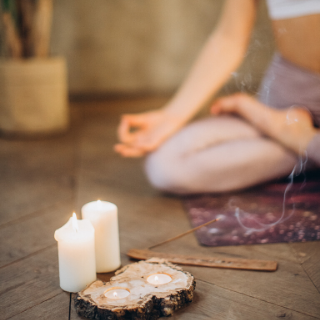
Remember, it's not a failure if you fall asleep before the meditation is complete! The aim is simply to calm your body and mind, preparing them both for rest.
One example guided meditation first involves taking a few minutes for deep, slow breathing. Inhale through your nose to a count of five, pause for three seconds, then exhale to a count of seven. When you're feeling relaxed and focused, begin a body scan that focuses on loosening your muscles.
Starting at the top of your head and working your way to the tips of your toes, imagine that each part of your body is releasing tension. Let each part of your body become floppy and relaxed.
If you do manage to stay awake until you reach your toes, you should find that you feel pleasantly heavy and sleepy, which is a prime condition for restful sleep.
Be Mindful

Establish a habit of "checking in" with yourself every hour or two, and take 5-10 minutes to relax when you need to.
One relevant mindfulness exercise involves picturing yourself breathing out your stress. Imagine it as a color - perhaps green or black - and see it leaving your body as you exhale.
An alternative is to do a quick visualization exercise, where you imagine yourself in a place that makes you feel good. Think of somewhere that reminds you of happiness and relaxation, or imagine a brand new place from scratch.
Immerse yourself in all the details - sights, sounds, smells, and sensations - for at least ten minutes, and carry that bliss back into your everyday life.
Try Sleep Inducing Foods Or Sprays
Often know as a "pillow mist", lavender sprays are famous for relaxing both body and mind when you want to go to sleep. Other scents you may find soporific include vanilla, sandalwood, and bergamot. As well as finding them in sprays, you can buy them in oils that can be used with reed diffusers to scent your room.
However, there are also particular foods you can eat in order to induce relaxation. Some examples include the following:
- Chamomile tea: Calming and caffeine-free.
- Decaffeinated Green tea: Contains theanine, a chemical that promotes sleep.
- Almonds or almond butter: A source of magnesium, that relaxes muscles and helps to regulate sleep hormones.
- Miso soup: A Japanese broth that provides you with amino acids that can improve sleep-inducing melatonin.
- Bananas: Provide magnesium, offering the same benefits as almonds.
- Warm milk: A classic for a reason! It soothes you as you swallow, and is said to make you sleepy.
Improve Sleep With Self-Hypnosis
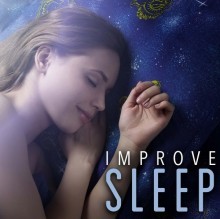
Any form of hypnosis has the potential to send you into a deep sleep - consider the stereotypical image of the hypnotized person's eyes drooping as they stare that a swinging pocket watch!
However, we offer a specifically designed sleep hypnosis track called 'Improving Sleep', which helps you prepare your body and mind for deep, continuous rest.
Deep Sleep hypnosis is particularly good at slowing your thinking, helping you to stop negative or anxious spirals. And, importantly, sleep hypnosis audio recordings can't make you do anything you don't want to do - sleep self-hypnosis only works if you already have the desire to sleep.
In addition, although you can listen to the recording every night, people often find that it quickly changes their relationship with sleep and is soon no longer required in order to relax.
So, if you're struggling to get enough rest and starting to feel the burden of sleep deprivation, self-hypnosis could be the perfect solution.

